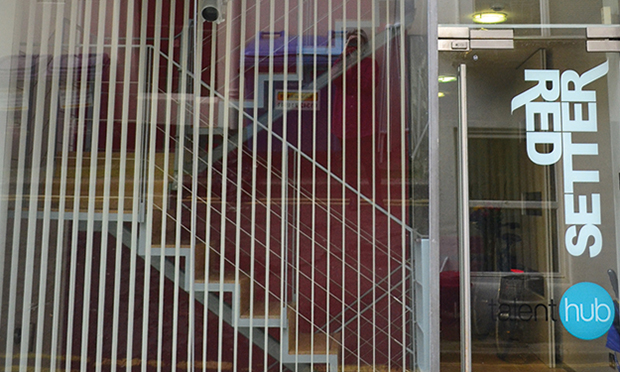Motivation is a strange beast. It can evaporate at will, with productivity never far behind. Employers face many challenges when trying to keep employees motivated . But the true challenge arises when reward fails to motivate expert employees, those at the top of their game who are working at a level where further career progression is unlikely.

If you read nothing else, read this…
- Motivation could be influenced by intellectual, social and emotional factors.
- Experts’ reward packages could be enhanced to maintain productivity.
- It is not all about reward, a simple thank you and recognising good work still impacts motivation.
- Business opportunities such as allowing experts to work into other areas also helps.
The onus is on managers and HR departments to ensure that their expert employees, who are an integral part of any organisation, remain motivated and engaged.
Charles Cotton, performance and reward adviser at the Chartered Institute of Personnel and Development (CIPD), says: “It is something that has been concerning employers for a while and now there are no upward career progression strategies.
“There used to be a growing recognition that giving promotions was a way of rewarding and keeping experts happy, but now some organisations have ended up with their experts becoming heads of departments, but unable to manage people.”
As a result, the challenge for employers is to balance short-term financial motives with long-term sustainable employee engagement among these sets of employees.
What influences motivation?
But what constitutes an expert within an organisation can vary between organisations. Colin Evans, associate director at Hay Group, says: “What defines an expert in an organisation, or those at the top of their game for that matter? These [employees] are assets to an organisation because they have built up a considerable amount of skills and experience in their field of work, so keeping them motivated with more than just a salary is vitally important.”
Keeping experts happy could be influenced by intellectual, social and emotional factors. As such, motivation is a complex, not easily defined, intrinsic driving force that can also be influenced by varied external factors.
The conventional wisdom is that employees work for money, above all else. More than three-quarters of employers (76%) say pay helps to motivate staff , according to the Employee Benefits/Aon 100 Club research , published in June 2014. Yet, every employee has activities, events, people, and goals in their lives that they find motivating. The trick for employers is to figure out how to inspire employee motivation at work .
David Wreford, a principal at Mercer, says: “What makes the proposition stronger than something else? Is it reward that gives experts the richness of their career or is it something that they do in the workplace? There needs to be other elements than just reward in the tool kit to be able to excite them.”
Tom Quayle, product manager at the Chemistry Group, adds: “Employers have to understand how to tap into their expertise and tailor motivation around what may motivate them , which could lead to a greater level of engagement and performance.”
Reward packages can make a difference
Employers could use recognition schemes , team building events, individual incentives, staff awards and socials, days out, prizes and vouchers, to reward and recognise employees who achieve in the workplace.
An expert’s reward package might be adapted to help keep them happy in their roles even if career progression is lacking. For example, it could be enhanced to give skilled members of staff a greater number of share options or provide them with full family healthcare cover.
Francis Goss, commercial director at Grass Roots, says: “Instead of giving these experts a promotion, organisations can give them an [upgrade] of an existing benefits package. They could receive a greater car allowance or a benefit that excludes other members of staff.”
However it is not all about reward. Building an appreciative culture for all employees whose strengths and contributions are recognised and valued is more likely to make them feel motivated about their jobs and positive about the organisation.
One4all Rewards’ Thank you report, published in September, found that nearly three-quarters (71%) of employees would turn down a higher salary to continue working for an employer that regularly thanks them for their efforts .
Simple recognition is an important factor
“The principle of recognition applies across all levels of staff ,” says Goss. “It is a fundamental need and desire by every employee to feel recognised for the work they are doing. I do not think it gets any less if an employee is an expert in the field, but it may vary. For example, employers may want to find another way to offer experts motivation vouchers that they can use to spend. Offering employees once-in-a-lifetime, money-can’t-buy experience days is just one example.”
Business opportunities could also be an area to influence motivation . Employees who identify with their employer’s vision and purpose are far more likely to be motivated and retained. “Experts will want to be involved in coaching or educating other employees,” says Mercer’s Wreford. “Creating opportunities like this helps expert employees feel like they are contributing towards the success of the organisation and the future talent.”
For a lot of experts it seems that it is not just about the money, although it is important. After a while its impact starts to diminish and other things take precedence when it comes to keeping the experts happy. The use of non-reward, such as expanding current job roles, can go some way to doing so.
Hay Group’s Evans says: “Employers always assume the way to keep people happy or motivated is through some monetary reward. There is a danger that it misses the point. If organisations have not thought about what motivates their skilled employees, they run the risk of losing these precious assets.”
Viewpoint: Nick Bacon

Retaining and motivating experts at the top of their game is an important challenge for organisations. Although employers routinely assess levels of job satisfaction, it is important to act on this information and address sources of dissatisfaction.
Satisfaction generally derives from positive job characteristics such as enriched jobs, good supervision and clear roles. In contrast, dissatisfaction stems from repetitive work, stress and insufficient support . Improving jobs and the supervisory environment are important for retention. Opportunities to lead projects or task forces are traditional ways of providing expert employees with breaks from their normal routine.
Attention should also be given to non-work factors that may trigger turnover. Having a baby, spouse relocation or other changes in personal circumstances, often encourage skilled-employees to re-evaluate their fit with the job and organisation. Opportunities for work-life balance adjustments are therefore important for retention.
Possibilities here may include home working, teleconferencing, and protecting experts from the encroachments of work demands into their social or family time. Flexible benefits may also enable them to adjust aspects of the compensation package to suit their personal requirements. A good example here is extending private health care to family members or the option of income protection.
But experts are less likely to change employment if they feel embedded and have strong ties with people in their organisation and community. Employers should encourage participation in sports activities or community volunteering, with highly trained employees or executives in high demand among local charities and hospitals as non-executive directors.
Also important are the commitments skilled experts may make to other staff. Spending more time coaching and mentoring high potentials in the organisation may help employees feel embedded and reluctant to leave. Such activities may counteract shock events such as unsolicited job offers or friends leaving the organisation.
Experts may also be motivated by increasing the sense of sacrifice associated with leaving . Benefits linked to longevity may increase this sense of sacrifice. Sabbaticals and other opportunities for personal development are good examples of such rewards.
Equally important is a good environment, which explains why many firms offer relaxation areas, onsite gyms and massages.
Finally, global surveys suggest recognition of their contribution by praise, commendation or special attention from leaders, remains an important motivation tool. Celebrating special achievements and the longevity of experts, as well as other employees, all aids keeping staff happy and motivated.
Nick Bacon is a professor of human resource management at Cass Business School.
Case study: Red Setter

Despite being a small organisation, with just 9 employees, business development consultancy, Red Setter, motivates experienced, expert members of staff with its family-friendly and healthy approach to work .
The company is comprised of ex brand directors, account directors and marketing managers who have all been used to working at a high level. Also, the majority of its employees have children.
Claire Blyth, founder of Red Setter, says: “If they were still working in London they would all be experts in their field. We had to look at how we could reward those effectively, by not only paying well, but also offering non-cash benefits to keep them motivated and retained.”
The organisation’s approach to motivation is very much family-friendly first . Its offices in Brighton are vibrant and it offers flexible working and childcare vouchers . It also aims to make the workplace somewhere that makes employees feel happy and healthy.
It offers all-staff posture consultations and weekly pilates classes to help keep motivation levels high . Frequent social events, such as a summer family beach-hut BBQ, are held as part of its strategy to keep a high level of work-life balance in the workplace, something that employees favour.
Employees also get the day off on their birthday.
Blyth says: “Salary is one thing, but true motivation comes from non-cash rewards . Aside from pay, we try to fit our organisation in with people’s family lives, which helps to motivate our employees and shows we care about them as an organisation. It helps them stay here for a long time.
“We are always recognising the good work our employees do by saying thank you and well done.”